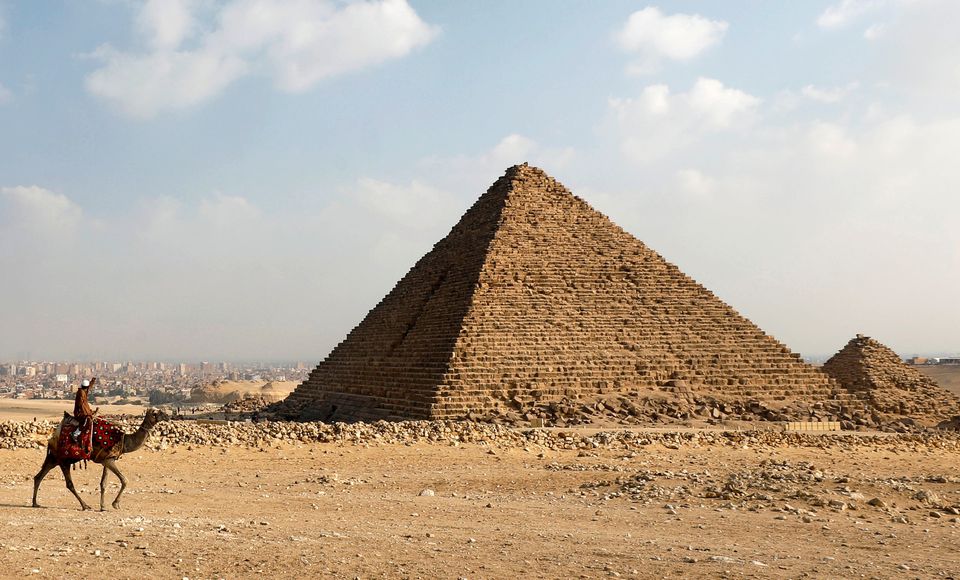Fears over the establishment of hard-line policies under the new Islamist leadership have raised questions about the fate of Egypt’s once-thriving tourism sector.
In the wake of the 2011 uprising, the tourism industry has suffered a sudden, dramatic decline as a result of prevailing political instability and the security vacuum in the country.
According to the 2011 report of the International Tourism Organization, Egypt has lost its prominent position among the top 20 countries for tourism, which it only joined in 2010. The report listed that the country descended from 18th to 26th in the last year.
Hisham Zaazoa, first undersecretary of Ministry of Tourism, ruled out the possibility that the escalating power of politicized Islamic movements poses a threat to the tourism industry.
“I’m optimistic,” Zaazoa said in a confident tone. “I believe that President Mohamed Morsy would not impose restrictions that could harm beach tourism, which is the backbone of the industry.”
Despite the country’s highly attractive Pharaonic antiquities, beach tourism, according to Zaazoa, generates around 85 percent of the sector’s revenues.
“I think that Morsy would adopt mechanisms that understand and suit cultural nuances of western countries,” Zaazoa suggests, justifying his opinion by saying that risking a sector with a work force of millions people and one of the nation’s largest sources of foreign currency could cause the country’s GDP to collapse.
“The experiences of other countries such as Turkey, Indonesia, and Malaysia have proven that the ascension of an Islamist to a nation’s top office does not necessarily mean that the country should face religious conservatism,” he says.
Some Islamist figures have previously sent clear signals that strict laws would be enforced concerning beach dress code, alcohol consumption, and mixed-sex beaches, which have stirred up concerns over scaring tourists away. No official clarifications, so far, have been provided to silence the doubters.
“Nothing has been cleared up about the state’s future approach to assure that no radical changes would be implemented,” says Mariam al-Attar, a travel agency manager.
“General statements issued by officials and ambiguous messages in the president’s speech do not sufficiently clarify the situation.”
In his public address at Cairo University, the newly-elected president pledged to promote investment and boost the lucrative tourism industry. However, the speech lacked far-reaching answers about tourism issues.
Attar points out that vagueness works against Egypt’s interests and weakens the ability to compete with other Middle Eastern tourist destinations including Lebanon, Turkey and Israel.
Uncertainty causes foreign travel agents to temporarily hold reservations in Egypt, she said, as well as refrain from renewing contracts for the upcoming winter season under unsure circumstances.
“Consequently, we are vulnerable to lose tourists to other countries in the region,” Attar explains.
However, Khaled al-Manawy, spokesperson for the Egyptian Tourism Federation, downplays such worries, expecting an influx in the number of tourists if the political situation stabilizes.
“There are currently optimistic indicators with gradually increasing demand on our tourism products,” Manawy points out. “But the country cannot get back on its feet while protests and political instability continue to serve as a major reason for presenting a negative image of Egypt.”
Zaazou concludes by calling on Morsy to send an international message through the media conveying that Egypt is capable of welcoming tourists from around the world.
“His appearance in the media would certainly quash tourists’ fears over religious extremism as well as assuring that it is safe for foreigners to return to Egypt,” he says.




